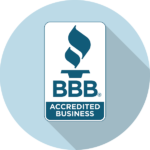Lawn After Care (FAQ) – Frequently Asked Questions
Here's a list of some frequently asked questions regarding your lawn after fertilizer and weed control has been applied, if you have a question that we haven't answered here we're just a quick call away!
General
What services do you provide?
We provide residential lawn care, commercial lawn care, acreage lawn care, fertilizer, weed control, mosquito guard, aerating, power raking, vegetation control, and overseeding.
How frequent are seasonal services?
A typical lawn care schedule is every one to two weeks to keep your yard looking healthy. Pest, weed, and disease control are maintenance services that occur less frequently.
How do I book your services?
When you choose from one of our service packages, you can conveniently book your services online by filling out the contact form. If you’d like more information or want a customized service, call us at 403-271-2111, and we’d be happy to discuss your property and provide you with a quote.
Do you have a cancellation policy?
Yes, you can cancel your lawn care services anytime.
How long does each of your services take?
Most residential services take less than 15 minutes (larger properties will take longer).
If I don’t like your services, will you refund my amount?
We do our best to keep our customers happy with their lawn care. If you are not satisfied with your lawn care services, we want to hear from you so we can make things right. Please call us at (403) 271-2111, and we will work with you to resolve the issue.
Do you offer environmentally friendly options for your services?
Yes, we offer organic fertilizer services with optional spot treatment of weed control. Please note that weed control is not organic.
When should I water after my application?
Water the lawn the day AFTER your lawn treatment. The weed control will work prior to the watering and the fertilizer will start to take effect after watered in.
When can I let my pets out?
You will want to keep your pets off the lawn until it is dry (usually a few hours). At that point it is ok to put them out briefly, and once application is watered in you can resume your normal routine.
When can my kids go out to play?
Keep kids off the lawn until it has been watered in thoroughly (as per watering instructions)
How long will it take for weeds to die?
Depending on the type of weeds and weather conditions, it may take 10-14 days to see results. Initially weeds will start to wilt and brown around the edges.
How do I fix dog spots?
Often the damage done by dog urine is permanent. It is best to replant the affected areas with new seed or sod.
How do I repair mouse damage in the spring?
Mouse damage will appear as “trails" in the lawn. Usually only the top of the grass plants are affected and will recover from the roots in the spring (this may take some time).
Lawn Weed Control
The lawn in my backyard is full of weeds. Can you help?
Yes, our weed treatments are included in all of our fertilizer programs and are applied on a spot treatment basis. To help protect your lawn and keep it healthy, we apply weed control only when and where it is needed. Our weed control and fertilizer programs are designed to give you a weed-free lawn while providing grass with the nutrients it needs to thrive.
What weeds are controlled with your service?
Our weed control services can control the broadleaf weeds found in the Calgary area.
How long should I keep children and pets off the lawn after weed control services?
As a general rule, we recommend keeping kids and pets off the lawn for 12 hours after treatments. It's best to wait until the product has been absorbed and the lawn is dry.
How much do you charge for lawn weed control?
We offer three tiers for weed control and fertilizer packages, see pricing here.
How long will it take for weeds to die?
Depending on the type of weeds and weather conditions, it may take 10-14 days to see results. Initially weeds will start to wilt and brown around the edges.
Lawn Care & Maintenance
What lawn care techniques do you recommend?
In between lawn care services, we recommend mowing and watering regularly. Depending on the conditioning of your lawn, we recommend weed control and fertilizer, aeration, and overseeding to achieve a beautiful and healthy lawn.
Will you dispose of grass and other debris?
No we do not dispose of grass and other debris with our lawn care services. With our power raking services, we do not take clippings with us. We leave them on site for regular compost pick up.
How often and when should my lawn be fertilized?
A common misconception about fertilizer is that it only needs to be applied during the growing season. However, to achieve a thick and healthy lawn all year round, we recommend applying fertilizer in early May or when the snow has fully melted and the growing season has started, late June to provide the lawn with nutrients to withstand the summer heat, early September, and mid-October to help the lawn grow strong and withstand the winters.
What types of residential lawn care packages do you provide?
We have three types of residential lawn care packages – premium, standard, and organic.
What residential lawn care services are available?
We provide weed control and fertilization packages along with customizable options such as aeration, power raking, vegetation control, and overseeding.
What types of commercial lawn care packages do you provide?
We have two types of commercial lawn care packages – liquid fertilizer & weed control and vegetation control.
When can I mow the lawn?
You should wait to mow the lawn until the application has been watered in thoroughly (as per watering instructions).
Lawn Power Raking
When should I power rake my lawn?
For cool season grasses, power raking is recommended in early spring. Power raking in the warm season grasses is better done in late spring to early summer. Because power raking does damage some healthy grass, it is important to power rake with enough growing season left for your lawn to recover. We recommend at least 30 days of growing season following power raking for the best results.
How do I get the best results from power raking?
If you haven’t power raked your lawn before, it’s best to leave this to the professionals, as power raking can do some damage if it’s not done right.
Does every lawn require power raking?
No. We recommend power raking if thatch is more than ½” thick.
Is power raking good for my lawn?
Yes, power raking is good for your lawn if there is a lot of buildup and dead matter. Power raking removes waste without damaging healthy grass. Your grass can “breathe” and recover faster from disease, pests, and heat.
How deep does a power rake go?
A power rake should only be done when thatch has grown more than ½” deep.
Is power raking necessary every year?
No, it depends on how much thatch has grown.
Can you seed after power raking?
Yes, after power raking is a great time to seed.
How much do you charge for power raking?
Please see our power raking page for more information and pricing.
Winter Lawn Care
Should I clean my lawn during the winter?
Yes. The snow cleaners remove debris, leaves, sticks, and other items every time. If a heavy snowfall comes and buries these objects, they can crush the grass and leave your lawn susceptible to disease.
Should I mow the lawn during winter?
Grass typically stops growing in late October or early November, depending on the temperature. Your lawn doesn’t need to be mowed during the winter, even if there is no snow on the ground. Mowing the grass too short during the winter can damage your lawn and put more stress on it when the snow eventually comes.
How do I take care of my lawn before winter?
Check out our article on how to prepare your lawn for winter.
What is the best length for grass in winter?
The ideal height for grass during the winter is between 2 – 2.5 inches. This is because your grass is at risk of disease if it is too long.
Do I need to aerate my lawn before winter begins?
Aerating allows the dirt plugs to break down over the winter months and help moisture find a way to the roots. When spring arrives, you can enjoy a lush green lawn with little preparation.
Fertilizing your lawn in the fall is vital as it is when much root development occurs. Unused nitrogen from the fertilizer is stored over the winter and will help your lawn look greener.
Should I fertilize my lawn before winter begins?
Yes. The fall season is the best time to fertilize your lawn!
If you have further questions regarding Lawn maintenance in Calgary, contact Greener Grass. Call: 403-271-2111
Mosquito Guard
Is your mosquito spray treatment safe for kids and pets?
Yes. Our mosquito guards are powerful enough to kill mosquitoes and other pests at the source while safe and non-toxic for pets and children.
How long do I need to wait before using the yard after a mosquito spray treatment?
After we have finished treating your property, we leave a minimal wait time for it to dry. The drying time is usually 15-30 minutes.
Do mosquito sprays smell bad?
Unlike other repellents, lotions, and other sprays, our mosquito guard solutions have minimal odour and won’t cause irritations.
The odour of our all-natural spray is mild to the human nose and should be completely unnoticeable within hours.
What if it rains after the mosquito spray has been treated?
Average rain should not impact the effectiveness of our service as long as the lawn has dried and bound to the plants after the treatment has been applied.
How much does your mosquito guard services cost?
Our mosquito guard services eliminate unwanted insects at the source starting from $299.95.
Unlimited service calls and sprayed monthly. Book today!
How do mosquito yard sprays work?
Mosquito yard spray effectively creates a shield on foliage and grass that repels insects and bugs. This solution offers protection for up to a month, which is why our Mosquito Guard services are repeated monthly to continue repelling mosquitoes and unwanted pests from your yard.
What is the difference between professional mosquito sprays and store-bought sprays?
Professional mosquito spray is applied with a backpack sprayer and can cover more ground than the general yard spray bottles you find at the store. Furthermore, some ingredients in generic mosquito sprays can be toxic, harmful to humans and pets, and dangerous for beneficial insects like honeybees.
When you choose a professional mosquito spray service in Calgary like ours at Greener Grass, you can rest assured that the solution is safe, effective, and won’t harm your yard.
How soon can you start applying mosquito spray?
Our Mosquito Guard program begins in early spring when mosquitoes start breeding and laying eggs. Mosquitoes breed quickly and can turn your yard into a nesting ground. We want to prevent this so you can start enjoying the warm summer months in your outdoor space as soon as possible.
What if there are still a lot of mosquitoes in my yard after a service?
You have unlimited service calls with the package. If mosquitos and other pests are still prevalent, call us and we can schedule a service call.
Residential Lawn Care
What types of residential lawn care services do you provide?
We provide Aerating, Power Raking, Vegetation Control, Over Seeding, and Soil Enhancer services. Check out our different packages available to learn more!
Should I mow my lawn in the winter?
During winter, the grass typically needs to grow more to necessitate frequent mowing. However, if occasional warm spells promote growth, it is advisable to trim the lawn in a higher setting. It is essential to avoid mowing saturated or frozen lawns.
Which times of the year should I consider getting residential lawn care?
In the spring, services like power raking, aeration, fertilization, and weed control are commonly performed to kickstart healthy growth.
Regular maintenance practices such as mowing, watering, and weed control are necessary during the summer.
In the fall, tasks like leaf removal, aeration (if not done in the spring), overseeding, and fertilization prepare the lawn for the dormant winter.
What does Greener Grass do to maintain residential lawns?
The suitability of our services depends entirely on your specific property.
While our Fertilizer and Weed Control Programs are frequently requested, we understand that each property has unique needs. Therefore, we can customize a program by incorporating additional services such as Power Raking, Aeration, Over Seeding, or Vegetation Control. This allows us to create a personalized plan that addresses your specific requirements and ensures your lawn receives the care it deserves!
Commercial Lawn Care
How do we look after commercial properties?
Greener Grass lawn care services can be used on all types and sizes of commercial properties. Our liquid fertilizer and weed control applications are recommended for our commercial clients, and we are happy to provide a quote for your property.
We can provide a beautiful, green and weed-free lawn for your place of business, condominium complexes, apartments, schools, and so much more. We also offer vegetation control service for your non-grass areas to keep these areas growth free.
Do you provide liquid fertilizers and Weed control?
Yes, our liquid fertilizer and weed control applications are recommended for your commercial needs. Call us for an estimate at 403-271-2111.
How often should my commercial lawn be cut?
The general guideline is to avoid cutting more than one-third of the total height of the grass at any given time. This rule emphasizes the importance of maintaining an optimal height for your lawn. When the grass undergoes rapid growth in the spring, it is recommended to trim it to a height of 3 inches initially.
This initial mowing sets the standard for the rest of the season. Once the spring growth has slowed and the first mow is done, a weekly mowing schedule will suffice to keep your lawn in good shape.
How often and when should I water my commercial lawn?
It is advisable to water your lawn only during periods of drought when it truly needs hydration. Signs indicating the need for watering include folded blades of grass that attempt to conserve water and visible footprints remaining on the lawn after stepping on it.
If your lawn exhibits these signs, it is recommended to water deeply once or twice a week, aiming for a maximum of one inch of water. This typically translates to approximately 15-30 minutes of watering time.
What is Vegetation Control?
This service is for eliminating all unwanted vegetation. It can control growth in parking areas, pathways, patios, and many others. Pricing of Vegetation Control starts from $100.00 + GS.
Acreage Lawn Care
How do we treat acreage lawn care?
Liquid fertilizer and weed control are offered to our larger acreage properties. We use the same method and attention to detail on our acreage properties as we do with our residential clients. All applications are applied with a truck-mounted hose to ensure a proper and even application.
Why should I consider Fertilizer and Weed Control?
Fertilizer and Weed Control are essential to maintaining a beautiful, green, weed-free lawn. Hiring a lawn fertilizer company is a wise choice to ensure proper application at appropriate times to achieve the desired results.
How can Greener Grass help with these services?
The Greener Grass Liquid Fertilizer and Weed Control Applications will provide your lawn with the nutrients it requires to promote growth and eliminate unwanted weeds. The number of applications each season is up to you, but our four-application program is recommended for the best results.
Book and pay for a full-season program and save the GST!
What is the pricing of vegetation control for acreage?
Pricing of Vegetation Control from $100 + GST
When should I consider Acreage lawn care?
Our lawn care programs are designed to provide the proper applications are done at the appropriate time of the season to give you optimal results.
Our four application programs are designed to apply an application at approximately 5-6 week intervals throughout the growing season.
How does Greener Grass apply fertilizers?
Our trained technicians will apply the fertilizer with truck-mounted hoses.All weed control is liquid + included at each application.
Lawn Fertilizer
What is lawn fertilizer?
Lawn fertilizer is an essential part of your lawn care. Applied properly and at appropriate times, fertilizer will stimulate and maintain growth and colour, resulting in a thicker lawn. Fertilizer also helps to encourage deep roots and strong blades, making the lawn disease and weed resistant.
What kind of lawn fertilizer services do you offer?
We offer organic, slow-release, and liquid programs. These are timed to natural growth cycles to give you the desired health and look of your grass. Our granular fertilizer is slowly released, so your lawn stays greener for longer.
We are also happy to provide an organic treatment for environmentally-minded customers. Our organic treatment uses natural compounds in the process and even provides a few extra nutrients in the process.
Greener Grass technicians are trained to maximize these cycles for the best results, and within 5-6 weeks of applications, your lawn will be the envy of the neighbourhood.
How does Greener Grass fertilize the lawn?
Greener Grass liquid treatment is a process applied via a hose. The liquid is a great cost-effective option whose process also helps control weeds.
Our granular fertilizer is slowly released, so your lawn stays greener for longer. We are also happy to provide an organic treatment for environmentally-minded customers. Our organic treatment uses natural compounds in the process and even provides a few extra nutrients in the process.
When is the best time to fertilize the lawn?
Greener Grass’ lawn fertilizer program is designed to stimulate lush growth and give healthy colour to your lawn. Our technicians work at scheduled intervals during the growing season to ensure the development of deep roots and strong blades of grass.
Applied correctly, a fertilizer program helps make grass disease resistant and much less prone to weeds.
What are the packages and pricing of lawn fertilizer?
Greener Grass provides three packages – Premium, Standard & Organic
- Premium – Starts from $269.95 + GST
- Standard – Starts from $249.95 + GST
- Organic – Starts from $279.95 + GST
Weed Control
What are Weed control treatments?
Weed treatments are applied on a spot basis, only when and where needed. It is designed to give you a weed-free lawn all season long by controlling the broadleaf weeds in the Calgary Area.
What’s included in your weed treatment services?
Weed Control treatments are included in all of our fertilizing programs. We can also offer weed control in non-lawn areas (back lane, parking area, sidewalks, patios) with our Vegetation Control option.
See all of our fertilizer packages.
How long should I keep children and pets off the lawn after weed control services?
Generally, we recommend keeping kids and pets off the lawn for 12 hours after treatments. It’s best to wait until the product has been absorbed and the lawn is dry.
How long will it take for weeds to die?
The time it takes to observe results may vary based on the type of weeds and prevailing weather conditions, typically ranging from 10-14 days. Initially, the weeds start to wilt and turn brown along the edges.
When should I consider weed treatment for my lawn?
The optimal times to utilize weed killer are in the spring and fall. In spring, weed killer effectively targets weeds before they enter their growth season, preventing them from sprouting. Similarly, weeds are particularly vulnerable in the fall, ahead of winter, making it another suitable time for weed control measures.
Chinch Bug Control
How do I get rid of chinch bugs in Calgary?
It's a good idea to hire certified professionals like Greener Grass, equipped with specialized products and proper safety equipment.
Insecticides can be potent and potentially hazardous, making them safer and more efficient. Attempting to manage the problem yourself with over-the-counter products might not be effective, as these are not specifically designed for chinch bugs and tend to be less potent than the solutions used by professionals.
How do I repair my lawn after chinch bugs?
Once your grass has perished, apply topsoil and sow new seeds, ensuring regular watering. You can expect to see new grass sprouting within a few weeks. However, if the damage is extensive and beyond control, consider re-sodding. It’s best to address the damage early to avoid reaching this stage.
What time of year do chinch bugs come out?
Chinch bugs typically start to become active and noticeable around June, with their presence increasing through July and August. As the temperatures rise and rainfall becomes less frequent, these pests appear and begin feeding. It’s an excellent time to keep an eye out and take preventative measures to protect your lawn.
How long does chinch bug control last?
The duration of effectiveness for treatments can differ, but generally, they offer protection ranging from several weeks to a few months, influenced by environmental conditions.
To learn more about chinch bug control, read our article.
How do I know if it was chinch bugs that damaged my lawn?
It's very tough to differentiate between chinch bug and drought damage. They can both look very similar; however, chinch bug damage is less uniform and the damage is in specific areas that aren't connected. Meanwhile, for drought damage, the damage is consistent and uniform throughout.
How does my lawn attract chinch bugs?
Chinch bugs typically infest dry lawns under stress or with a significant amount of thatch.
Regular lawn care, including consistent watering, frequent mowing, and yearly aeration, is essential to deter these pests. At Greener Grass, our specialized services effectively target chinch bugs with a comprehensive liquid treatment to provide coverage across your entire lawn.
What is the lifespan of chinch bugs?
Adult chinch bugs have a lifespan of about 50 days, during which they can significantly dehydrate your lawn by sucking the moisture from each grass blade. This issue is compounded by their rapid reproduction rate, allowing them to affect large areas of your lawn in a short period.
Do chinch bugs go away in winter?
Chinch bugs remain dormant and freeze during winter, hibernating until the warmer weather arrives, when they thaw out and become active again.
Overseeding
When is the best time to overseed your lawn in Calgary?
Early fall is usually the ideal time to overseed in Calgary, thanks to cooler temperatures and more frequent rainfall, which create perfect conditions for seed germination.
How do I prepare my lawn for overseeding?
It's crucial to cut the existing grass short, clear away any debris, and aerate the soil. This helps ensure optimal seed-to-soil contact, which is critical for successful overseeding.
What type of grass seed should I use for overseeding in Calgary?
For overseeding in Calgary, opt for a grass seed blend tailored to the local climate. A great choice is a mix of Kentucky bluegrass, perennial ryegrass, and fine fescue. Consider consulting a professional overseeding service like Greener Grass for tailored advice and high-quality seed options!
How often should I water after overseeding?
To encourage healthy growth, keep the soil consistently moist but ensure it’s not waterlogged. This usually means watering lightly but frequently during the first few weeks after overseeding.
Can I walk on the lawn after overseeding?
You should try to minimize walking on the newly overseeded lawn to protect the germinating seeds and fragile young seedlings from damage.
When will I see results from overseeding?
Germination should begin within 7-14 days. A visible improvement in your lawn's thickness and overall health should be noticeable within a few weeks to a month.
Soil Enhancer
How do I know if my soil needs enhancement?
You should enhance your soil if you notice compacted soil, plants showing nutrient deficiencies, or issues with water drainage. These are common signs that your soil could benefit from some improvement.
How long does it take to see results from soil enhancement?
The timeframe for seeing results from soil enhancement can vary based on the enhancer used and the soil's initial condition. Generally, you can notice improvements within a few weeks to a few months.
Is soil enhancement a one-time treatment, or does it need to be repeated?
Soil enhancement is typically an ongoing effort. Periodic treatments may be necessary to maintain soil health and fertility. Regular soil testing is a good practice to identify when additional enhancements are needed.
When is the best time to apply soil enhancers?
Soil enhancers can be applied in spring, summer, or fall to promote a healthy lawn all year round. It can be applied in the spring to help lawns prep well for the growing season, in the summer when foot traffic and heat can affect the health of the soil, and during the fall to protect the lawn during winter.
Is soil enhancer good for my lawn?
Yes, soil enhancers are suitable for your lawn if the quality and performance of the soil are subpar. This treatment helps lawns get the nutrients they need without damaging healthy grass, allowing grass to recover faster from disease and heat.
Can I seed after applying soil enhancer?
Yes. In fact, soil enhancers can help new grass grow thicker and healthier with the proper nutrients.
Can soil enhancers be added to other lawn care services?
Yes, you can request a soil enhancer treatment with our other lawn care services, including fertilizer, weed control, aeration, power raking, overseeding, and vegetation control.
What is the difference between fertilizer and soil enhancer?
Fertilizer supplies essential nutrients that lawns need, while soil enhancers help improve the soil's condition so nutrients can flow more easily.
How do soil enhancers work?
Soil enhancers are packed with micronutrients that promote natural plant growth and help roots grow strong without harming the grass. Our liquid soil enhancers are applied directly to the soil to improve its condition.

Better Business Bureau
A+ Ranking

Servicing Calgary and Area Since 1986

Family Owned & Operated

Caring for your lawn and the Environment

 family owned and operated for 39 years
family owned and operated for 39 years